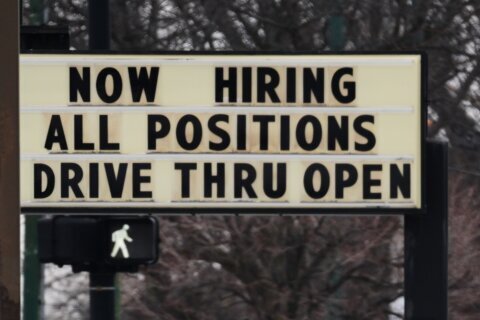Zoom has been used to interview for jobs, but what if there’s not a person on the other side of the interview? Can algorithms assess job candidates better than humans? Virginia Tech research says yes.
Using automated video interviews, or AVIs, allows human resource managers to screen more applicants and, at the same time, narrow the list of candidates to those most suited to the job before ever meeting them in person. It can also reduce the time it takes to hire, save companies money and give candidates a chance to present themselves beyond a resume.
They are becoming more common — and are raising concerns about fairness and bias. But Virginia Tech research concludes AVIs can be effective and objective tools.
In an automated video interview, a job candidate is presented with a list of predetermined questions, with responses recorded and evaluated by algorithms — a form of artificial intelligence but not entirely AI.
Louis Hickman, assistant professor in the psychology department at Virginia Tech, and his team looked specifically at AVI personality assessments and the reliability and validity of those assessments. Algorithms look for subtle behaviors that suggest personality traits, such as verbal cues and nonverbal cues, including facial expressions.
“People were judged as more conscientious for giving longer answers, and also for using longer words and more complex language, maybe to show they were thinking more deeply about their answers. People were rated as more extroverted for talking faster,” Hickman said.
Automating the process of evaluating personality standardizes interviews and leads to applicants being evaluated equally, the research determined.
It also takes the human factor out of the interviewer, as computers don’t have moods.
“If we have humans evaluate an interview, I might judge people differently based on, well maybe I forgot to bring my coffee with me to work this morning and I am grumpy because I don’t have my caffeine. Maybe my dog died, and I’m in a bad mood,” Hickman said.
“We can score interviews in a way that look a lot like the judgment of multiple humans being aggregated together. So what that tells us is that these AVI scores on interviews can actually be better than having just one single human evaluate an interview,” he said.
In theory, AVIs also exclude any judgments based on gender, race or even attractiveness.
The Virginia Tech research did come with caution, suggesting further research is needed to determine whether AVI personality assessments result in adverse impact to certain groups, and to ensure the legality and ethicality of using them.
Another concern is the job candidate’s understanding of the AVI process. A separate report from Harvard Business Review found candidates were confused, and did not know how AVI would be used to assess them.
The study led by Hickman was published in the Journal of Applied Psychology, and was recently awarded the Jeanneret Award for Excellence in the Study of Individual or Group Assessment by the Society for Industrial and Organizational Psychology.
Get breaking news and daily headlines delivered to your email inbox by signing up here.
© 2024 WTOP. All Rights Reserved. This website is not intended for users located within the European Economic Area.








